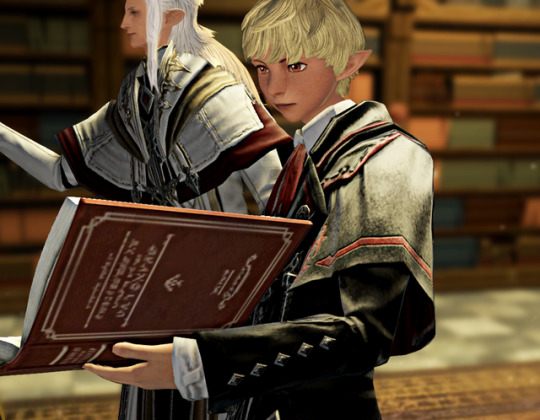#quote's wilfred owen from a letter to mary
Text
Ode of remembrance

controversiesĮvery year, after ANZAC Day and Remembrance Day, the Department of Veterans’ Affairs in Australia receives scores of letters about “The Ode”. The BEF notepaper adds a particular poignancy, as the poem was written to honour British soldiers who died on the Western Front – many of whom Binyon, as a volunteer medic, would have served alongside. Small letters at the foot instruct: “To economise paper, please write on the other side, if required”.īinyon did not date the manuscript, but he likely penned it before the war ended in 1918. The header contains a YMCA symbol and the imprimatur of the British Expeditionary Force (BEF). The manuscript is a mere four lines, written in Binyon’s hand, on a single octavo page of ruled notepaper. The Poetry is in the pity.” the handwritten “ode”Įarlier this month, “an autograph manuscript of the immortal fourth stanza”, signed by Laurence Binyon, came up for auction at Bonhams. Wilfred Owen – who died in action at age 25, exactly one week before the signing of the Armistice – provided the inscription: “My subject is War, and the pity of War. His name is commemorated on a stone plaque in Poet’s Corner at Westminster Abbey, alongside 15 fellow poets of the Great War. These lines, situated at the heart of the poem, lay out an argument for consolation in which the dead are immortalised in the memory of the living.īinyon died on 10 March 1943, and his ashes were scattered on the grounds of St Mary’s Church in Aldworth. They shall grow not old, as we that are left grow old:Īge shall not weary them, nor the years condemn Īt the going down of the sun, and in the morning, Recited at Remembrance services in Britain, Canada, Australia and New Zealand, the poem serves as a secular prayer: The fourth stanza – lifted to prominence as “The Ode of Remembrance” – is engraved on cenotaphs, war memorials and headstones in war cemeteries throughout the English-speaking world. Nearly a century on, Binyon’s poem endures as a dignified and solemn expression of loss. “The poem grew in stature as the war progressed”, Binyon’s biographer John Hatcher observed, “accommodating itself to the scale of the nation’s grief”. “ For the Fallen”, as Binyon called his poem, was published in The Times on 21 September 1914. With the British Expeditionary Force in retreat from Mons, promises of a speedy end to war were fading.Īgainst this backdrop Binyon, then Assistant Keeper of Prints and Drawings at the British Museum, sat to compose a poem that Rudyard Kipling would one day praise as “the most beautiful expression of sorrow in the English language”. Long lists of the dead and wounded were appearing in British newspapers. It was less than seven weeks after the outbreak of war, but British casualties were mounting. McCrae saw action in the First World War and supervised medical care in Boulogne with the Canadian Expeditionary Force.On an autumn day in 1914 Laurence Binyon sat on a cliff in North Cornwall, somewhere between Pentire Point and the Rump. McCrae's focus was on the peace that follows death, from the perspective of fallen soldiers lying in their graves. Perhaps the most quoted poem on war, In Flanders Fields was first published in December 1915 after it was penned by Canadian physician Lieutenant-Colonel John McCrae during the First World War.Īfter appearing in London’s Punch magazine, it soon become a popular reflection on the sacrifice of war. There are many poems that sit well with acts of Remembrance but here we feature some of the most popular, with a new addition to the list. These can be recited as the nation pauses to honour the fallen, or simply read as part of your own personal reflection as we remember the men and women of Britain, the Commonwealth and Allied nations who have fought together over the years, from the First and Second World Wars, to more recent conflicts. These are some of traditional, and not so traditional, poems in full. Here we look at some of the most poignant poems that regularly feature in the commemorations for Remembrance Sunday and Armistice Day. Poetry is one of the many forms of expression that the nation turns to as we reflect on the sacrifice made in the defence of our way of life. The nation's traditional, favourite poems for Remembrance are recited each year as part of the commemorative services. Remembrance each year honours the members of the Armed Forces who have served their country and pays respects to the fallen who have given their lives in defence of our democratic freedoms.

0 notes
Photo



Life reminds me that I am no more than a boy.
#quote's wilfred owen from a letter to mary#these were#rough#i rly ran out of steam by nol#he n eph are... looking at some soldiers go by or smth aksjfasjfh#lselle took some surgery so im glad he looks#not empty-eyed lol#dont talk to me abt his outfit lmao#also jos' hair is driving me up the wall as always#sits down#i need to do my hw but im glad these turned out!!#bri edits#nolanel feran#ephemie renaud#l'riha ria#emilyn ran#l'selle ran#josseloux cadieux#my goal was to be done w these an hour ago at least aaaaa
33 notes
·
View notes